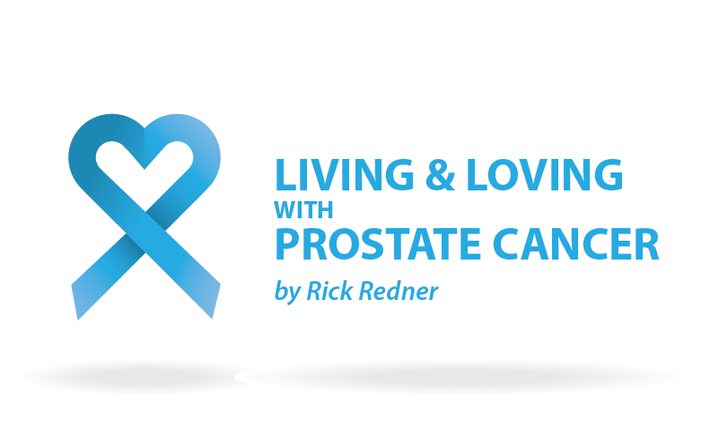It took seven emergency room visits, two urgent care visits and two private appointments before doctors understood why I was suffering from bouts of excruciating pain. My chest X-rays, lab tests and an abdominal CT scan all came back normal. Then I had a sonogram.
The day after the sonogram, I was immediately referred to a surgeon. He felt my abdomen, and told me my gallbladder was swollen to the size of a melon. Then he pulled out the sonogram and he showed me a large stone lodged in the neck of my gallbladder. He said, “I’m sorry to tell you this, but your gallbladder has to be removed.” I had surgery the following week.
As I compared and contrasted my experience with gallbladder and prostate surgery, the differences were striking. With my gallbladder, I experienced painful symptoms. I knew something was seriously wrong. I saw many doctors and went through blood tests and diagnostic procedures. It took time, tests and multiple doctors before I received a diagnosis.
With prostate cancer, I was symptom-free. I went in for a prescription refill. A doctor I’d never seen before insisted on performing a prostate exam, even though I’d already had this exam within the previous six months. I was stunned when he told me that he felt “a suspicious lump” and that he needed “to schedule [me] for a biopsy.”
It took time and multiple exams and physicians to get a correct diagnosis for my gallbladder. My prostate cancer was discovered on a routine visit to a urologist, then confirmed with a biopsy.
When I went to a surgeon to discuss the results of the sonogram of my gallbladder, the surgeon made it quite clear that my gallbladder had to be removed as soon as possible.
With my gallbladder, I wasn’t asked how I wanted to treat this problem. My doctor made the treatment decision based on my diagnosis. All my life, I thought doctors were trained and paid to make treatment decisions.
When I went to my urologist to discuss my prostate biopsy results, he asked me how I wanted to treat my prostate cancer. I thought he was joking. I didn’t feel qualified for or capable of making that decision.
I left the appointment with my urologist frustrated, angry, frightened, confused and scared that I was responsible for making the treatment decision about the most serious disease I’d been diagnosed with in my lifetime. What’s more, I knew absolutely nothing about prostate cancer or the ways in which it was treated. How could I possibly make the correct treatment decision, based on my diagnosis, when I was totally ignorant?
All I knew was that I wanted to be treated as soon as possible. When he told me to come back in a week to discuss my decision, I felt as though I was living a nightmare.
I met my urologist a week later to discuss my decision. There was no way I was going to make a treatment decision before I heard from the doctor, whom I trusted with my life.
When he adamantly refused to tell me how I should treat my prostate cancer, I had to get his opinion another way. So I posed a question to him: “If you just received my biopsy results, how would you treat your cancer?”
Without hesitation, he said, “I’d go for surgery.”
That’s the treatment option my wife and I were thinking would be best. With his input, our decision was confirmed.
With the variety of treatment options available, how to treat your prostate cancer may be one of the most difficult decisions you’ll make in your lifetime.
For the majority of men, taking weeks or months to consult with a variety of doctors will not affect your outcome or long-term survival. But it is important to ask your doctor if delay will affect your outcome or survival.
Several factors make it difficult for men to decide how to treat their prostate cancer. Among the challenges:
- Cancer is a frightening word. By the time you are old enough to receive a diagnosis of prostate cancer, the odds are that you’ve known a friend or family member who has died of cancer. Your personal experiences with cancer will influence how you perceive your diagnosis and how you should treat your cancer.
- If you know little or nothing about prostate cancer, it’s nearly impossible to understand how to treat your disease based upon your diagnosis rather than your fears.
- So many treatment options exist that it’s difficult to know and understand which treatment option would be most effective.
- Quality of life issues are associated with different treatment options. Losing urinary control, sexual desire, experiencing penile shrinkage or erectile dysfunction are frightening possibilities.
If someone were to ask me what was one of the most difficult decisions I’ve had to make in my lifetime, there’s no doubt I’d say choosing how to treat my prostate cancer is right up there.
There’s no single right way to treat your prostate cancer. Before you make your treatment decision, consult with a variety specialists. Take time to read about the various prostate cancer treatments. Talk with men who’ve chosen different options.
Us Too is one of the many helpful organizations around to help men diagnosed with prostate cancer get the information and support they need.
If you base your decision about treating your prostate cancer on your specific diagnosis and information, rather than your fears of cancer, you’ll discover the right treatment choice for you.
***
Note: Prostate Cancer News Today is strictly a news and information website about the disease. It does not provide medical advice, diagnosis, or treatment. This content is not intended to be a substitute for professional medical advice, diagnosis, or treatment. Always seek the advice of your physician or other qualified health provider with any questions you may have regarding a medical condition. Never disregard professional medical advice or delay in seeking it because of something you have read on this website. The opinions expressed in this column are not those of Prostate Cancer News Today, or its parent company, BioNews Services, and are intended to spark discussion about issues pertaining to prostate cancer.



These types of medical decisions happen – when I herniated a disk and it was pressing against a nerve root, I wanted it fixed right now!!
But, instead of comparing to a gallbladder (or a herniated disk), compare instead to high blood pressure, high cholesterol, etc. Each can be symptom-free, but with blood tests, diagnostic results, prescriptions refilled, treatment decisions are varied and use the patients’ input — there’s no single right answer…..these types of medical decisions and outcomes happen regularly.
In my case for my early stage prostate cancer, we decided on active surveillance. 5 years and two months later, we’re still convinced it was the right choice.
Glad to hear you found the right option to treat your prostate cancer
Hi Brian,
What was your Gleason score?
I’m at the decision stage and its not an easy one.
Finding the right treatment in my opinion should be a case of looking at short and long term results versus side effects. You can find these facts with a little Google work. If you are in early stage (Organ Confined) I would go for a knockout punch but would avoid surgery due too high degrees of side effects. I have noted for myself that the “Cyber Knife” (Robotic Stereostatic Radiation) has the best short and long term results and the fewest side effects. There are many newer treatments but they do not have long enough track records of at least 5-10 years. Beware of Doctors that advise what they are most familiar with.
Peter
Avoiding surgery may be the right treatment decision for you, but for tens of thousands of men every year surgery is the right choice. I chose surgery. It was the right choice for me. I will not advocate for or against surgery.
My Gleason score in 2012 was 6(3+3); the 2nd opinion confirmed. Same results in 2014 and 2016. Contemplating now if (rather than another biopsy in 2018, which at the very least are uncomfortable and inconvenient) maybe it makes sense to hold off the next biopsy for an additional year and/or have one of those new blood tests done which tests the aggressiveness of cancer. Would prefer staying with active surveillance if the numbers keep pointing in that direction.
There’s always time to consider alternatives.
Just for the record I have posted my opinion before. “Active Surveillance” is too me a very poor strategy. Ask your Doctor if he can guarantee that during this time period that there will not be metastases to the bones or a vital organ? He will probably quote statistics as his reasoning. Next ask him why is prostate cancer the one form of cancer where early treatment is not recommended? Next ask him, Is it true that a single cell of prostate cancer that escapes the organ can show up later as remote tumors and a slow death sentence? I’m not being dramatic, this is a fact. Statistics are not human beings and using them as means of calming a scared patient out of early treatment is nothing more than playing Russian roulette with the life of that patient. Having helped many of my friends in this area I can only report that one of my friends ignored this advice when he was first diagnosed and waited a year and later had only radical surgery as an option. He survived the surgery and so far so good but he now has potency problems etc which are quite common with this type of treatment. My advice is simple, better safe than sorry later. Get treatment while the opportunity of a cure is at its most available.
Rick
After my father died of PC I became a volunteer researcher for the last 15 years and have helped my friends and family with this difficult choice. Your point is well taken. The following book is great and I only wish I had written it. Outside of two new therapies it covers them all by a patient that had medical device experience. Its extremely clear and comprehensive.
AN ABC OF PROSTATE CANCER TODAY Second Edition My Journey over 4 Continents to Find the Best Cure Alan G. Lawrenson
Lawrenson, Alan. An ABC of Prostate Cancer Today (Kindle Locations 24-31). Alan G Lawrenson. Kindle Edition.